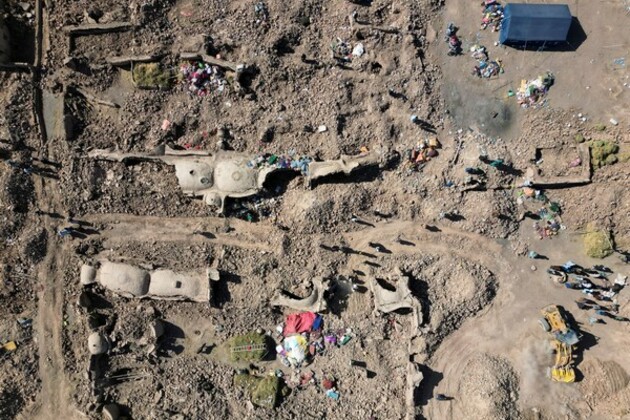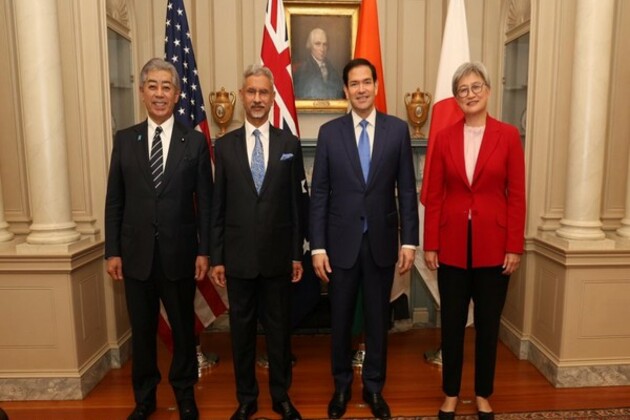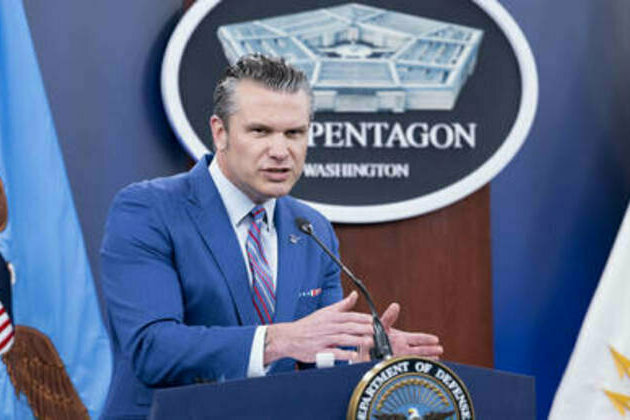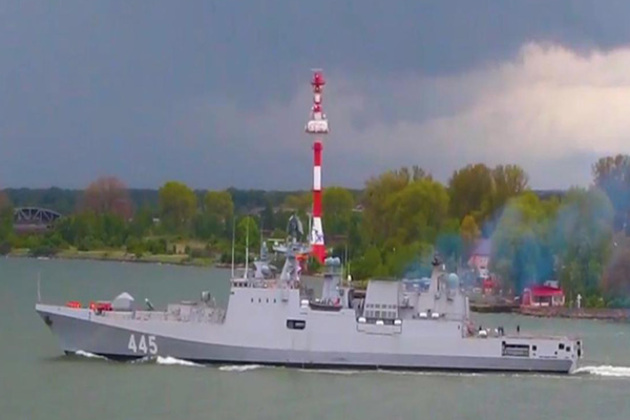Jordan Seeks Middle Ground in Mideast Rift
Voice of America
14 Aug 2019, 23:35 GMT+10
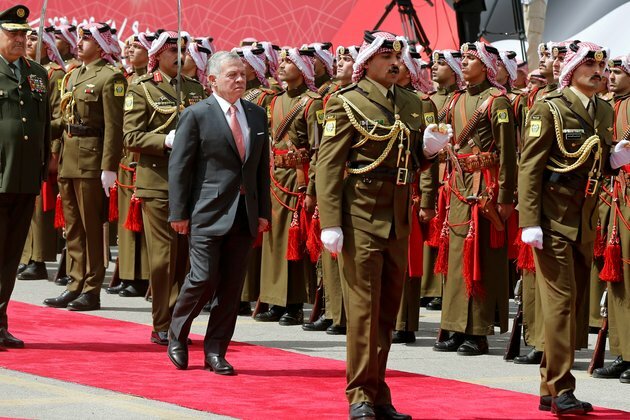
AMMAN, JORDAN - A diplomatic rift in the Middle East is deepening with Qatar and Turkey on one side, and Saudi Arabia, other Gulf Arab states along with Egypt on the other. Divisions have been growing over how to contain Iran's widening sphere in the region and the latest crisis on Gulf waterways, as well as the ongoing conflict in Syria and disputes over support of the Muslim Brotherhood and Hamas.
Key U.S. ally and moderate, Jordan, is trying to take some distance from its longtime Gulf Arab partners by getting closer to Qatar and Turkey and putting itself in the middle ground.
Jordan's King Abdullah is charting a more independent foreign policy course than in the past, analysts say, by taking some distance from the desert kingdom's longtime Gulf Arab partners. Jordan recently restored full diplomatic ties with Qatar by naming an ambassador to the country for the first time in two years, with Qatar following suit.
The development comes more than two years after Jordan downgraded its diplomatic representation, a few days after Saudi Arabia, the United Arab Emirates, Egypt and Bahrain - often known as the Arab Quartet - cut diplomatic ties with Qatar, accusing it of supporting Islamist militants and meddling in their internal affairs. Jordanian political analyst Osama al-Sharif explains.
"Jordan is realigning its foreign policy and the king is sending a statement that he does not want to be part of any axis or coalition in the region, except the coalition to fight ISIS. But other than that, Jordan has not joined the Saudi-led coalition in Yemen. It has taken steps to restore full diplomatic relations with Qatar because it does not want to be part of an anti-Qatar coalition," he said.
Jordan is also strengthening ties with Turkey after being wary of its growing clout in the Arab world. Turkey has been building up its influence as a major Sunni Muslim power player to compete with regional heavyweight Saudi Arabia in the Middle East, much in the same vein as Shiite Iran has jostled for control by using proxies in regional conflicts.
Analysts say Jordan's warming of relations with Qatar and Turkey, who are key rivals of Saudi Arabia, signals a turnaround in Jordan's foreign policy, known to support Saudi Arabia and the United Arab Emirates on most regional and inter-Arab conflicts.
But they say that Gulf Arabs states have not fulfilled pledges to help bolster Jordan with billions of dollars in a bid to soften the impact of International Monetary Fund austerity reforms on its cash strapped economy. And their shift in foreign policy focus on Iran along with Washington leaves Jordan worried whether a future Palestinian state will be set up under any Middle East peace deal.
Despite Jordan's King Abdullah II's first warning in 2004 about the spread of Iran's growing influence in Iraq, Lebanon and Syria-dubbed the Shiite crescent-analyst Al Sharif says Jordan doesn't have the appetite to get involved in the growing rift with Iran over the Gulf waterways.
Even with regard to Iran, it has been very careful in choosing what kind of actions to take when Saudi Arabia called for countries to withdraw or close their embassies. Jordan recalled the ambassador but kept the Iranian ambassador in Amman and did not close its embassy. So, Jordan is trying to underline the fact that it has its own interests to care for in the region and it does not want to be pulled into some sort of axis fighting another axis," he said.
The real bone of contention between Saudi Arabia and other Gulf Arab states, along with Egypt on the one hand and Qatar and Turkey on the other, is Iran says Günter Meyer, who directs the Center for Research in the Arab World at Germany's University of Mainz.
Qatar maintains a loose military cooperation with Iran and both countries jointly operate a gas field in the Gulf. Although Qatar tries to serve as a mediator, Meyer says, the Saudis do not find this acceptable.
He adds that the rift between also is playing out in Libya. There, Egypt and Saudi Arabia are backing Libyan militia commander Khalifa Haftar, while Qatar and Turkey support the government in Tripoli.
 Share
Share
 Tweet
Tweet
 Share
Share
 Flip
Flip
 Email
Email
Watch latest videos
Subscribe and Follow
Get a daily dose of Yorkshire Observer news through our daily email, its complimentary and keeps you fully up to date with world and business news as well.
News RELEASES
Publish news of your business, community or sports group, personnel appointments, major event and more by submitting a news release to Yorkshire Observer.
More InformationWorld
SectionMethionine Restriction Could Extend Lifespan, Boost Health
VILNIUS, Lithuania – A growing body of research suggests that selectively restricting a single nutrient in our diet could have profound...
Western Sydney raid results in seizure of $25 Million in drugs
SYDNEY, NSW, Australia - , Australian Federal Police (AFP) have shut down a secret drug lab in Sydney's west and seized more than 100kg...
Earthquake of magnitude 3.9 strikes Afghanistan
Kabul [Afghanistan], July 2 (ANI): An earthquake of magnitude 3.9 struck Afghanistan on Wednesday, a statement by the National Center...
Remain concerned about situation in East China Sea, South China Sea: Quad Foreign Ministers
Washington, DC [US], July 2 (ANI): The Foreign ministers of the Quad nations met in Washington, DC, on July 1 to reaffirm their steadfast...
Trump threatens Hamas with something worse
The US president has urged the Palestinian group to accept his Gaza ceasefire proposal US President Donald Trump has publicly warned...
Trump threatens Hamas with something 'worse'
The US president has urged the Palestinian group to accept his Gaza ceasefire proposal ...
UK Sports
SectionPentagon halts weapons supplies to Kiev over depleting stockpiles - media
The US has reportedly paused deliveries of precision missiles, artillery shells, and air defense interceptors as its own arsenal runs...
FIFA Club WC: Last two QF spots up for grabs as Real Madrid, Dortmund among teams in action
New Delhi [India], July 1 (ANI): The last two spots for the quarterfinals of the FIFA Club World Cup will be sealed by either Spanish...
(SP)U.S.-ORLANDO-FOOTBALL-FIFA CLUB WORLD CUP-MANCHESTER CITY VS AL HILAL
(250701) -- ORLANDO, July 1, 2025 (Xinhua) -- Ali Lajami (R) of Al Hilal saves the ball during the round of 16 match between Manchester...
Saudi's Al Hilal knock Man City out of Club World Cup
ORLANDO, 1st July, 2025 (WAM) -- Saudi Arabian side Al Hilal sent English giants Manchester City crashing out of the Club World Cup...
Indian Navy's latest warship INS Tamal to be commissioned today in Russia
New Delhi [India], July 1 (ANI): The Indian Navy is all set to commission its latest stealth frigate, INS Tamal, in Russia on Tuesday....
NorthEast United FC's all-time best ISL XI
Guwahati (Assam) [India], July 1 (ANI): NorthEast United FC, one of the founding members of the Indian Super League (ISL), have experienced...



